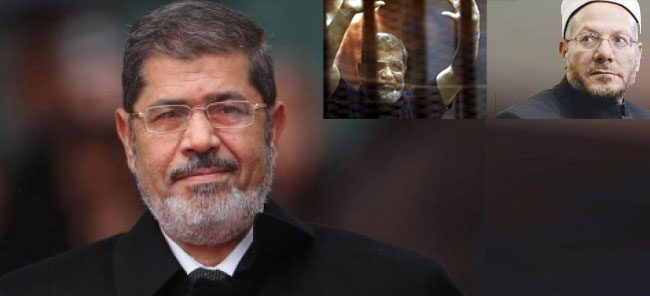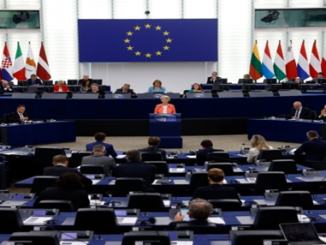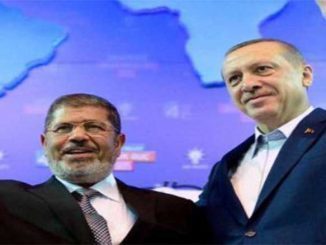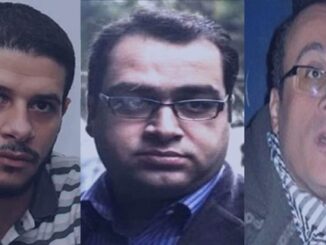
Dr. Shawqi Allam – Egypt’s Grand Mufti – has been discouraged from visiting South Africa, where a large number of Muslims feel bitter about his role in approving the death sentence of Egypt’s first democratically elected president, Mohamed Morsi, according to TRT World.
Since June, Allam has faced widespread criticism after endorsing the death sentence against President Mohamed Morsi.
The religious leader is expected to travel to South Africa along with his delegation in the coming days, but the Muslim Judicial Council (MJC) of South Africa has excused itself from entertaining his visit.
The MJC, which is one of the oldest religious delegations in South Africa and has a large following, sent a letter to the Egyptian embassy regarding Allam’s visit on September 20, in which it said that the objective of Mufti Allam’s “peace mission” has been diluted after he signed the death warrants of Egyptian citizens including President Morsi.
In Egypt, all death sentences have to be approved with a final opinion from the grand mufti, the country’s leading religious authority.
The MJC letter said,”We fear that South African liberation movements in our country would strongly oppose and protest the visit of the Mufti and his delegation, and could potentially escalate into adverse conditions for them during their intended visit.”
Dr. Aayesha J. Soni, the vice-chairperson of Media Review Network, a Johannesburg-based Muslim advocacy group, said Allam will face a hostile reception if he visits South Africa as “South Africans do not entertain leaders who insist on violating the basic human rights and freedoms of their citizens, nor those who vow on endorsing such injustice!”
TRT World reported that the chairman of the same advocacy group, Zaakir Ahmed Mayet, issued a statement welcoming calls for seeking the investigation, arrest, and prosecution of Allam.
Mayet’s statement came after the Britain-based Muslim Lawyers Association and Egyptian citizen Mohamed Reda Elhenedawi Elorabi lodged a case seeking the implementation of various pieces of legislation, both domestic and international, which place obligations on the Republic of South Africa to take action against proponents of war crimes and crimes against humanity.
In this context, Mayet urged the South African Government to heed the calls for an investigation.
This is not the first time that the popular protest has surfaced in South Africa against Egyptian leaders seen as human rights violators.
It is noteworthy that a group of South African lawyers filed a request for arresting Abdel Fattah al-Sisi. As a result, Abdel Fattah al-Sisi cancelled his trip to Johannesburg last year.
In 2013, Abdel Fattah al-Sisi launched a military coup against Mohamed Morsi, a Muslim Brotherhood leader,who came to power through free elections in 2012 following the end of Hosni Mubarak’s 3- year rule over Egypt.
Almost 40,000 Egyptians have been arrested by the regime since the military coup for opposing the regime and their participation in protests. During the first days of the coup between July and August, more than 1,000 people were killed” when the new regime conducted clearing operations to remove Muslim Brotherhood protesters from sit-ins in Cairo.”
Morsi’s trial drew scrutiny from human rights organizations which saw it as being politically motivated.Amnesty International stated after the sentence was announced,”These entire legal proceedings have been a mockery of justice and the death sentences must be thrown out.”
On June 19, 2016,Cairo Criminal Court has sentenced the first democratically elected President Mohamed Morsi to life in prison and an additional 15-year prison sentence in what is known as the Qatar espionage case. Life sentences in Egypt are 25 years behind bars.
Morsi’s trails were described by Amnesty as being “fundamentally unfair” as they relied on evidence gathered while he was subject to enforced disappearance by the army during the months after being removed from power. Morsi has been sentenced in four major trials. The former president was sentenced to death for alleged involvement in a mass prison break during the Arab Spring, 20 years imprisonment over the detention and torture of protesters and life over supposed collusion with foreign militant groups including Hamas and Hezbollah.



